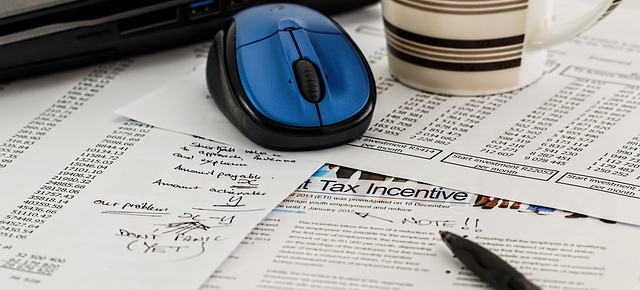Which documents should you collect for easy access to prior to retirement? You should assemble all your important financial documents in a central location. This could be a digital password protected folder, a physical file cabinet or folder. Regardless of how you decide to gather your documents, you’ll save yourself a lot of hassle in the future by getting organized from the beginning.
What to include in the paper or digital file cabinet? This could depend on your specific situation, but some of the common documents that you should consider include the following categories:
Do you need your bank or brokerage statements? You probably don’t need to maintain all brokerage statement for several years, but the last year’s ending or Q4 statement as well as the most recent statement will be useful. Since cost basis has been included in brokerage statements in recent years, record keeping is a bit easier than it may have been in the past. Want to make things even easier? Your custodian will likely have online access to all statements. Consider saving your login information and reduce the need for physical paper entirely.
What type of health information is needed? Your health insurance card (group, Medicare, individual, etc.) should be in your wallet in the case of an emergency, although a copy might be useful to maintain along with your other health insurance documents. These can include your plan’s summary of benefits, list of network providers, drug formularies and contact information for the insurance agent you purchased the policy from. This will come in handy if you have questions or need to make changes.
What life insurance policies do you own? You may think your life insurance policy is simple and your beneficiaries will need only the name of your agent to process a claim upon death. While many policies such as term contracts are fairly simple, you may wish to maintain a copy of your full insurance contract, especially if you have a permanent policy such as whole, variable or indexed universal life. These policies may have additional options to examine before death such as changing how investments in the contract are allocated or what happens with dividends. As with your health insurance information, maintaining your agent’s contact information is a good idea.
Have you determined or updated beneficiaries? Unfortunately, many account holders of investment, retirement or insurance accounts to not have a beneficiary selected or have not updated the selection to reflect current wishes. This could mean that not only will the asset potentially not be distributed as desired but that it will need to go through the probate process. Select or update beneficiaries for all of your investment and retirement accounts but keep in mind that special care must be taken with making a trust your beneficiary. This can be a complex choice for retirement accounts so please discuss the matter with the estate planning attorney who drafted your trust before making it the beneficiary of any retirement account.
What about Social Security? A copy of your physical Social Security Card is needed, but don’t stop here. You can get a print out of your benefit statement at www.ssa.gov by logging in or creating an account. For those who have yet to file for social security, your marriage license, divorce papers, military discharge paperwork and most recent year’s tax return may be relevant in the application process depending on how you choose to elect benefits. (As a reminder, apply for Medicare three months before turning 65 even if you are opting to delay receipt of Social Security benefits.)
Do you have a pension? A Benefits Statement and Summary Plan Description will be useful documents. You’ll also want to maintain the contact information for the benefits representative at your former employer.
What documents are relevant to homeowners? Your homeowners and umbrella insurance policies should be available. You will also want to have access to your mortgage documents, deed and property tax statements. A list of contents and warranty information for appliances will also be useful. If your home is owned inside a trust, be sure to include that document, which leads us to the topic of estate planning…
Do you have a will and trust or other estate planning documents? There are several estate planning documents that you’ll want to include in your document files such as your will, trust and health care directive and power of attorney. While you’re retrieving these items, it may be a good idea to make sure they are current. This usually means that they still reflect your wishes, have removed parties who have recently passed away, and reflect updated changes in tax law relevant to your situation. Most recommend reviewing your estate planning documents at least annually or any time a relevant change occurs.
What tax records should I keep? At a minimum, you should keep your most recent year’s tax return as well as any tax-related documents that could prove relevant in future tax years. These may include receipts for improvements or additions that increase the cost basis of your home over time.
What are my wishes for social media and other digital accounts? Users of social media platforms or other online tools have different wishes for what they’d like to happen to their accounts after death. Some would like the account to be deleted, some would like it to remain as is and some (often public figures) would like their accounts to be managed by a third party. Some platforms have their own policies for the accounts of deceased individuals. Make sure you know the rules of the platforms you use and have indicated your wishes for your own digital footprint.
This is initially labor intensive, but the work will pay off over time. You’ll have added convenience and peace of mind in retirement by knowing that all of your relevant documents are updated and available to access when needed. In addition, the process of gathering the items may remind you to make updates you had thus far delayed.












